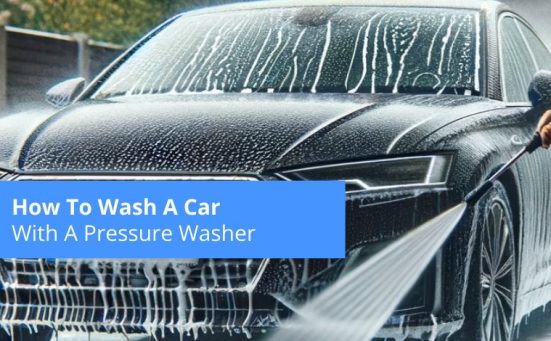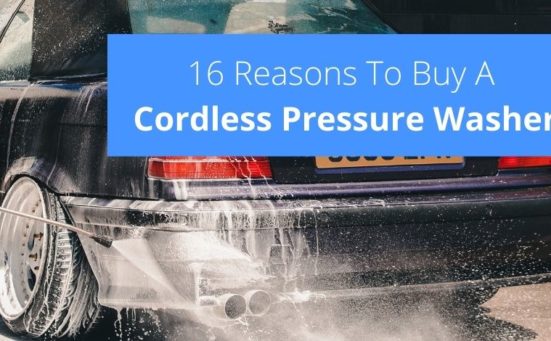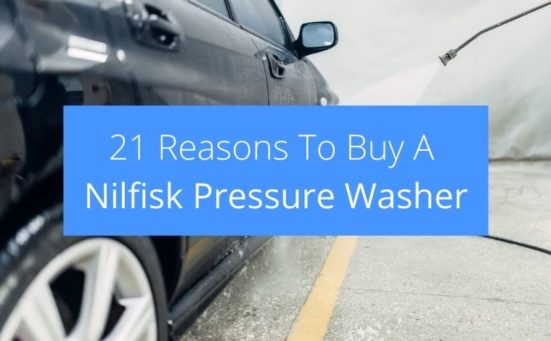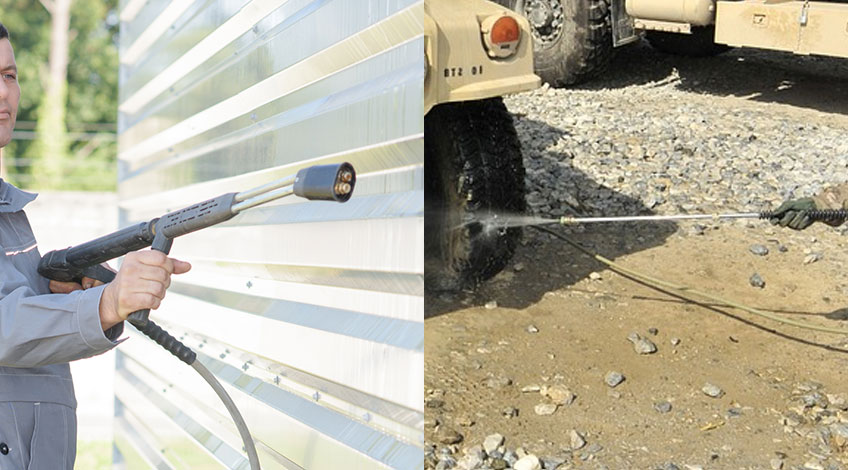
Pressure Washer Vs Power Washer
Most of us assume that a pressure washer is the same thing as a power washer. And why not? They look very similar and they are both used to clean patios, driveways etc. But power washers are different to pressure washers read on to find out how.
How Are Pressure Washers Different To Power Washers?
Pressure washers and power washers look very similar, and they both use water to clean outdoor areas. So what’s the difference? To answer this fully we need to look at how both types of washer work.
How Does A Pressure Washer Work?
A pressure washer uses cold water fired at high pressure to remove dirt and debris from patios, drives, fences, and anywhere else outside that is dirty. The way a pressure washer increases the pressure of tap water is by means of an internal water pump, and various nozzles. The nozzles supplied with the pressure washer allow different rates of water flow giving more or less pressure depending on how dirty or delicate the object being washed is.
For instance, if you use a nozzle with too much power to wash a car the force of the water could rip off wing mirrors, scratch the paint job or even dent the body-work! Use a nozzle with not enough power and it will not clean the area satisfactorily. Oil stains and grease can prove difficult to remove with a pressure washer unless they are treated first with a degreasing agent, and then pressure washed off.
How Does A Power Washer Work?
A power washer works in a similar way to a pressure washer but includes a heating element to create hot water at up to 200 F (93 C). That’s a combination of power plus heat to easily remove stubborn stains quickly. Grease and oil can be lifted from driveways without the need to treat them beforehand.
Other benefits of using a power washer include the removal of mould, moss and algae and cleaning extremely dirty areas fast. Power washers tend to be less powerful than pressure washers, but the added heat is more effective at cleaning many things.
Power Vs Heat
The main difference between pressure washers and power washers is pressure washers use cold water and rely on the power of the pressurised water to remove dirt and stains. Power washers use water pressure but their cleaning power is ultimately heat. Power washers sometimes have a steam setting to melt away those really stubborn stains.
What Can You Wash With A Power Washers
As power washers use high-temperature water power to remove stains they have many applications for use. Power washers are suitable for:
- Bacteria – Due to the high-temperature of the water, power washers will kill bacteria and prevent regrowth.
- Mildew and mould – Mould and mildew are similar in type and are forms of bacteria so the hot water spray from a power washer will remove this quickly and prevent it reforming.
- Dried chewing gum – Once chewing gum has dried and hardened onto the hard surface of a drive or patio it can be extremely difficult to remove, even with a pressure washer. A power washer will make short work of removing chewing gum because of the heated water which will melt the gum just enough to loosen it. Then the power of the spray will remove the gum.
- Oil-stains – The combined force of the heat and power of the power washer will lift old oil stains with no problem at all.
- Grease – As with oil, if grease is left to dry into the concrete surface, it can be incredibly difficult to remove. If using a pressure washer, the stain will need to be treated first with a special degreaser, which will need time to soak. Only then can the grease be removed by water pressure alone. Using a heated spray of water from a power washer will remove grease easily without the need of treating beforehand.
- Salt – Using grit on a driveway in winter to keep the ice away is a sensible and common practice. Unfortunately, the grit contains salt which will leave a white stain on the drive, the power washer is perfectly suited to remove this salt stain.
- Rust stains – If you have those ugly rust stains on your walls you can clean them away with a pressure washer, but a power washer will do the job much faster.
What Can You Wash With A Pressure Washers
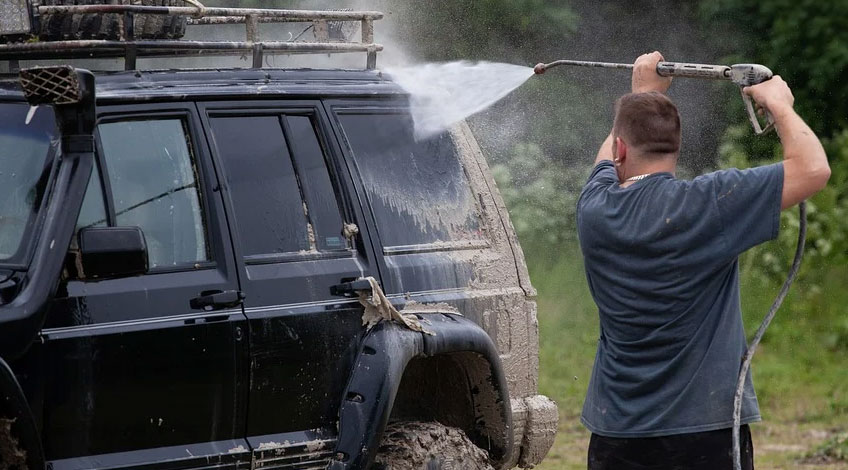
Pressure washers are just as good as power washers for cleaning drives, patios, paths, cars, buildings, fences, and many other places. In fact, a pressure washer is often the best choice because of the extra power it can give. It’s only on really tough stains like grease, oil, mildew and mould that a power washer will do a better job.
What’s The Difference Between Pressure Washers And Power Washers?
To sum up the difference between a pressure washer and a power washer in a nutshell it’s
Heat Vs Power
A pressure washer uses cold water and creates high pressure to wash surfaces clean of dirt, stains and debris. A power washer creates less pressure and relies on hot water to remove stubborn stains. Pressure washers tend to be mainly electric-powered (with some exceptions) whereas power washers are mainly petrol (or diesel) operated. This means pressure washers tend to make less noise than power washers.
Do I Need A Power Washer Or A Pressure Washer?
Look at the area you need to clean, does it have bacteria, mould or mildew growth? Is it a drive with oil or grease stains? If the answer is yes then a power washer will do a better job. For general cleaning tasks, a pressure washer will probably be your best bet.
Pressure Washer Vs Power Washer Pros And Cons
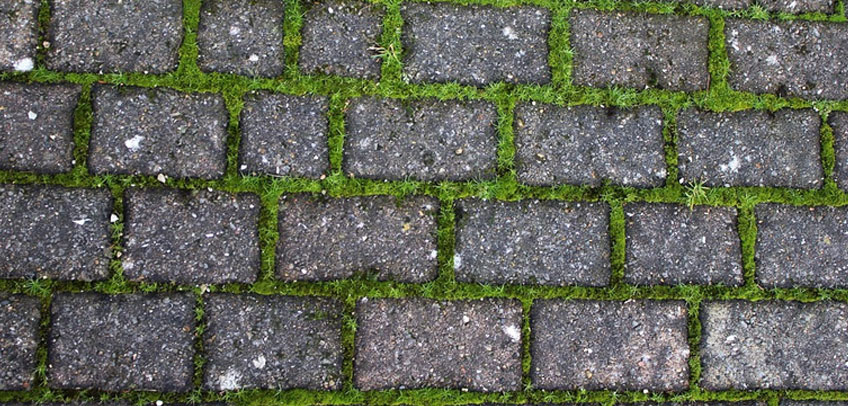
To clarify the differences easier take a look at our handy pros and cons chart:
| Task | Power washer | Pressure washer |
|---|---|---|
| Cleaning debris and dirt | yes | yes |
| Cleaning patios | yes | yes |
| Removing bacteria, mould and mildew | yes | no |
| Removing gum | yes | no |
| Removing grease | yes | no |
| Removing oil | yes | no |
| Removing salt stains | yes | yes |
| Clearing rust stains | yes | yes |
| Cleaning paths | yes | yes |
Still Not Decided?
If after reading this you’re still not 100% certain on what pressure washer to buy head over to our pressure washers buyers guide for more detailed information.
Also, follow us on Pinterest ...

